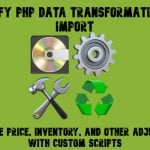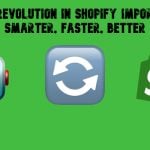Best Django (Python) CMS 2015
 We have already told about PHP and Ruby on Rails CMS, and now it is time to speak about content management systems based on Django which is a free web application framework. Django is open source and it is written in Python following the architectural pattern “model–view–controller”. The aforementioned language is widely used for settings, files, and data models. The framework was designed to ease the creation of compound, database-driven websites. Django relies on reusability and “pluggability” of its components; the “don’t repeat yourself” principle; and optional administrative interface designed to create, update, read, and delete different content. The most well-known Django based sites are Pinterest, The Washington Times, Instagram, Public Broadcasting Service, etc.
We have already told about PHP and Ruby on Rails CMS, and now it is time to speak about content management systems based on Django which is a free web application framework. Django is open source and it is written in Python following the architectural pattern “model–view–controller”. The aforementioned language is widely used for settings, files, and data models. The framework was designed to ease the creation of compound, database-driven websites. Django relies on reusability and “pluggability” of its components; the “don’t repeat yourself” principle; and optional administrative interface designed to create, update, read, and delete different content. The most well-known Django based sites are Pinterest, The Washington Times, Instagram, Public Broadcasting Service, etc.

Despite its own nomenclature, the core framework of Django can be considered as MVC. It consists of an object-relational mapper which acts as a mediator between data models and a relational database, a system which processes requests with a regular-expression-based URL dispatcher and a web templating system. Data models are defined as Python classes; a relational database is a “Model“; a web templating system is a “View“, and a regular-expression-based URL dispatcher is a”Controller“.
The configuration system of Django allows to plug a third party code in regular projects, if everything follows the reusable app conventions. There are 2500+ packages designed to extend the original behavior of the framework. As a result, you can get a lot of solutions inherent for the original tools. CMS features are among them.
FeinCMS is based on Django and relies on a few useful content types. It has rich texts – TinyMCE instance is a default editor; there is a support for CKEditor; other text editors can be integrated with ease. FeinCMS is able to display almost all types of media files. The system shows them in an intelligent manner and offers dedicated download links. To add a video to a new post, you just have to copy-paste a link to YouTube or Vimeo. There is no need to use the full embed code or adjust a size of the video for the website. FeinCMS also provides a comment form for every page and the ability to include HTML/JavaScript on the site. In addition, you can include third party Django apps as different reusable components. FeinCMS allows you to add an extra functionality to the site only when it is necessary.

FeinCMS admin
Using FeinCMS to add content tools
Pinax is another Django based open source platform. It integrates multiple reusable apps, provides starter projects and has useful infrastructure tools. The platform takes care of the functionality that many sites provide so you can focus on the uniqueness of your project. Pinax has a wide range of use: different social networks, conference websites, intranets and online games are based on this CMS. The system provides a standard project layout, reusable apps and default templates. Pinax relies on a reach back-end functionality and all possible user-facing components.

Pinax
Pinax Django getting started
Built on the Django framework, Mezzanine provides a lot of powerful tools, consistent solutions, and flexible content management features. The system is based on a highly extensible architecture that requires diving into the code. Mezzanine is published under the BSD license. The CMS has an active community with responsible members. Mezzanine is similar to WordPress by some means. As a result, you get an intuitive interface for managing blog posts, pages, store products, and other content. Unlike other platforms, Mezzanine provides most of its features by default, so you don’t have to work with modules and extensions.

Mezzanine

Mezzanine admin
Django Mezanine CMS
Aldryn is another reliable Django based content management system. It is easy to setup – the overall process is automated, fast and painless. Aldryn provides you with the ability to manage multiple projects from a single dashboard. You also get smart updates with this CMS – new features are available within one click. In addition, you can integrate your own apps. Marketplace capabilities are also possible within the system – you just have to install correct add-ons. Last but not least, the hosting is included for every Aldryn based project.

Aldryn

Aldryn admin
Aldryn: create & deploy a new project
Django CMS is an easy-to-use and developer-friendly solution. The platform is open source and has a strong community. Django CMS is based on plugins. The highly extendable plugin-based system allows you to create projects with all possible kinds of contents. Thanks to readable URLs Django CMS ia SEO friendly. It also places a strong emphasis on e-commerce. As a result, you can integrate your online shop with Django project with ease. Thanks to highly developed permission management system, the platform provides you with the ability to set specific rights to different users. In addition, Django CMS supports hundreds Python apps, so you can get the ready to use add-ons withou any headache. The system is integrated with Google Analytics, has a robust blogging engine, and is translated into 40+ languages. You can always find the latest updates on GitHub.

Django CMS

Django CMS admin
Django CMS 3.0 App Integration
Wagtail is an open source solution published under the BSD license. It means, that you can get as much freedom as possible. Wagtail has a fast and friendly user interface, so all your work with content turns into an exciting process. The system runs on a standard web server environment. You can host Wagtail on your own machine, on a shared server, of in the cloud. It doesn’t need any expensive servers. The overall performance of this CMS is responsive and super-quick with lightning fast page loading times and searches. With Wagtail, you will spend less time on configuring your site and more on perfecting your project.

Wagtail

Wagtail admin
Wagtail CMS Launch Event










